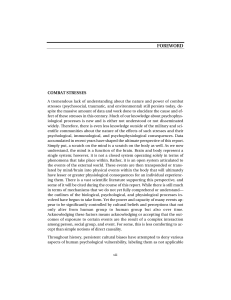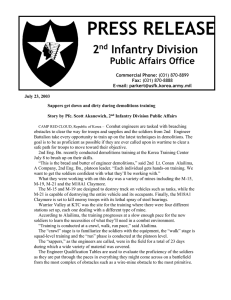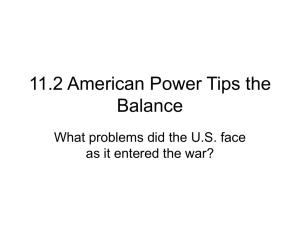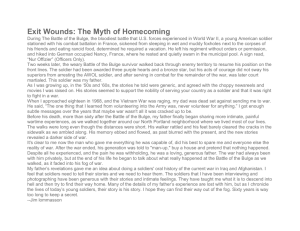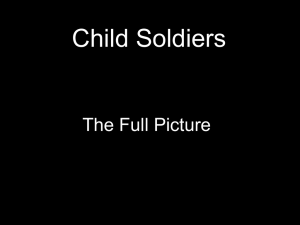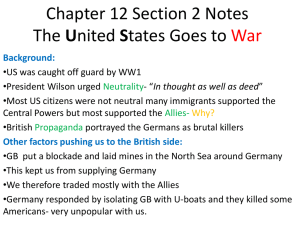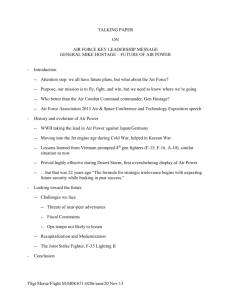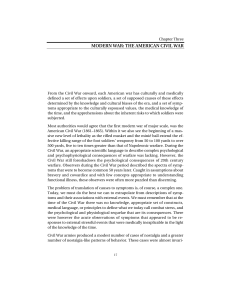Seminar Discussion Questions, Week of 28 September
advertisement
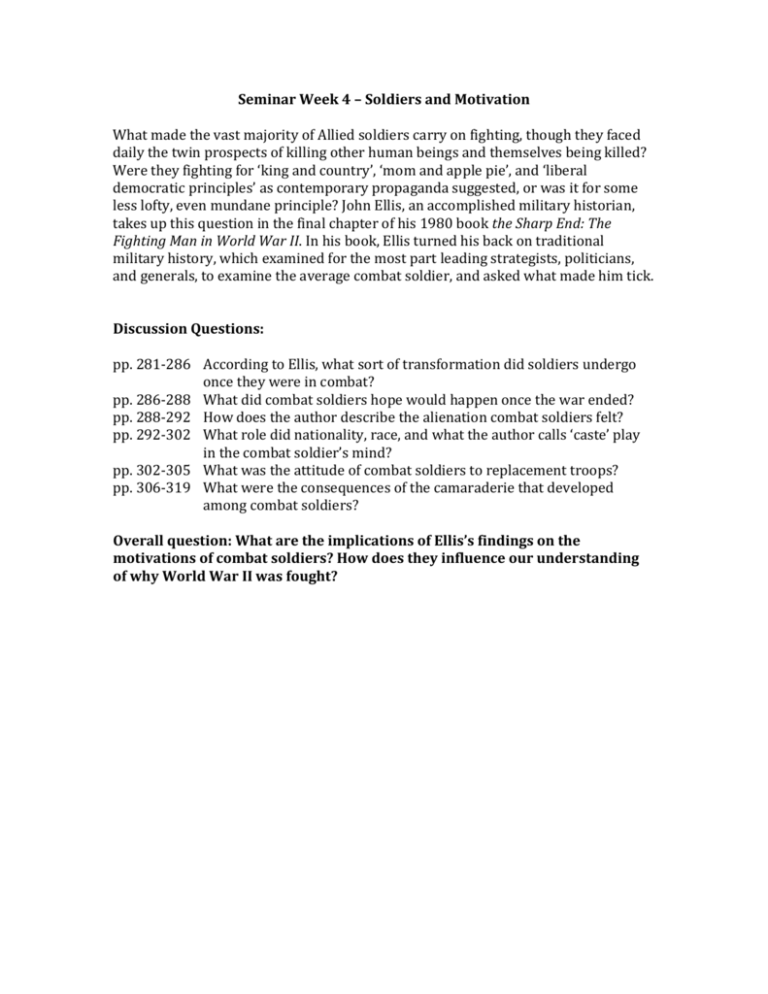
Seminar Week 4 – Soldiers and Motivation What made the vast majority of Allied soldiers carry on fighting, though they faced daily the twin prospects of killing other human beings and themselves being killed? Were they fighting for ‘king and country’, ‘mom and apple pie’, and ‘liberal democratic principles’ as contemporary propaganda suggested, or was it for some less lofty, even mundane principle? John Ellis, an accomplished military historian, takes up this question in the final chapter of his 1980 book the Sharp End: The Fighting Man in World War II. In his book, Ellis turned his back on traditional military history, which examined for the most part leading strategists, politicians, and generals, to examine the average combat soldier, and asked what made him tick. Discussion Questions: pp. 281-286 According to Ellis, what sort of transformation did soldiers undergo once they were in combat? pp. 286-288 What did combat soldiers hope would happen once the war ended? pp. 288-292 How does the author describe the alienation combat soldiers felt? pp. 292-302 What role did nationality, race, and what the author calls ‘caste’ play in the combat soldier’s mind? pp. 302-305 What was the attitude of combat soldiers to replacement troops? pp. 306-319 What were the consequences of the camaraderie that developed among combat soldiers? Overall question: What are the implications of Ellis’s findings on the motivations of combat soldiers? How does they influence our understanding of why World War II was fought?


